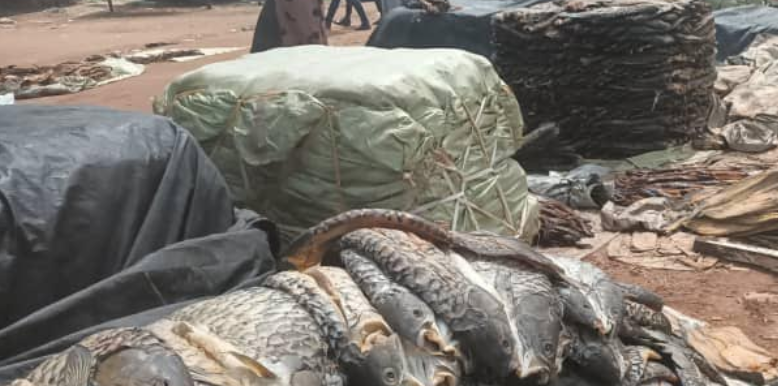In the heart of Jonglei State in South Sudan, the completion of the new asphalt Juba-Bor Highway has become a symbol of hope for jobless youth as it has expedited and eased transportation and ushered in new opportunities, particularly in the form of the now flourishing fish business.
Part of Jonglei State lies in the Sudd which is one of the largest swamps in the world with a diverse freshwater ecosystem extending from Mangalla in Central Equatoria State to the Sobat River in the Upper Nile region. It is home to large populations of various fish species which makes fishing a widely practiced activity among the inhabitants of the area for food and income.
A cross-section of Bor residents told Radio that the highway has positively impacted on their lives because they now transport fish easily to far-flung areas within the country and export dry fish to Uganda and the Democratic Republic of Congo (DRC).
A fishmonger, Bol Aboric, said he goes home smiling with cash in his pockets after selling his stock and hopes things will only improve.
“My life has changed like never before and with time, I believe things will only get better. For now, I earn SSP 100, 000 or 200, 000 per bundle of dry fish exported to Uganda or DRC,” he happily revealed. “These opportunities, however, come with challenges. We lack storage facilities to protect our stock from rain.”
“There are also multiple checkpoints exacerbated by this issue of inflation,” Aboric added.
Another fish trader, Alith Alier Deng, said that they previously faced an arduous journey when transporting their bundles of fish to neighbouring countries but that the new highway had now reduced travel time and expenses.
“When we started selling fresh fish in 2017, the poor condition of the Juba-Bor road then was a setback and limited our earnings,” he said. “I even stopped transporting fresh fish because I had an accident. With the (new) Juba-Bor Highway, I resumed business and can now earn USD 100 per exported bundle of fish.”
While the Juba-Bor Highway has undoubtedly aided the fish business in Bor, challenges persist in form of a lack of proper storage facilities, improved market access, and training for local fishermen and processors, among others.
According to Alier, they incur losses at the various checkpoints manned by security personnel through unclear payments.
“There are a lot of losses in this business. For example, there are several roadblocks from Bor to Juba for which we have to pay about SSP 300, 000,” he explained. “We have to part with another 600,000 from Juba to Nimule. This is costly for us.”
However, a fisherman who identified himself as Deng Garang, said the positive change occasioned by the thriving fish trade upon their lives and the local economy outweighs and any of the challenges they face.
“The increased ease of transportation has enabled us to increase production levels and earn greater profitability,” he revealed. “The demand for fish is increasing that is why many educated young people have joined the trade.”
Meanwhile, Ayuen Kur, the deputy secretary-general of the Jonglei State Chamber of Commerce and Industry, said the flourishing fish business is creating jobs and facilitating economic growth.
“The increased demand for fish has created numerous job opportunities for the youth. From fish processing to packaging, transportation, and marketing, the industry has become a vital source of employment, reducing unemployment rates and contributing to economic growth,” he noted. “On the daily basis, about 10 to 15 trucks leave Bor for Kenya, Uganda, and DRC. This business is really flourishing. As the chamber of commerce, we are encouraging them to carry on despite the challenges because opportunities come with challenges.”
For his part, the executive director of the youth-led ATAKA Hub South Sudan, John Bior, said the Juba-Bor Highway is a game changer.
“The Juba-Bor Highway has provided employment opportunities and empowered the youth to become entrepreneurs,” he said. “Many young individuals have ventured into the fish business by engaging in fishing, setting up processing facilities and engaging in fish trade.”
“This has instilled a sense of ownership and financial independence in them,” Bior added.
The asphalt Juba-Bor Highway is the first phase of an infrastructure project expected to connect Juba to the Upper Nile region. When completed, it will be one of the longest four-lane dual carriage highways in East and Central Africa.




